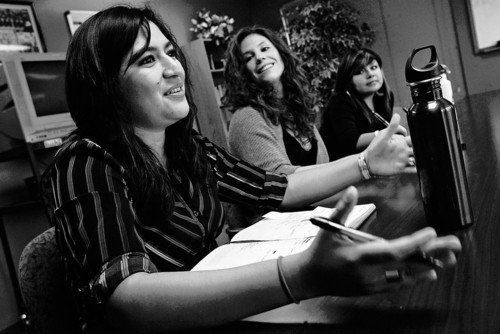This is an archived article that was published on sltrib.com in 2011, and information in the article may be outdated. It is provided only for personal research purposes and may not be reprinted.
Young adults and Latinos shoulder most of the blame for Utah's second-worst-in-the-nation voting turnout last year, according to U.S. census data released on Wednesday.
The agency's Current Population Survey asked people last year if they voted, and then broke down information according to age, sex and race.
An earlier study by George Mason University — which uses actual vote totals instead of survey estimates — reported that only 32.2 percent of Utahns of voting age who were qualified citizens voted in November, which tied with Texas for second-worst among the states, just barely behind New York.
The new census estimates show some groups of Utahns voted more than others.
Only 11.8 percent — just one of every eight — of those between the ages of 18 and 24 voted, for example, the worst of any subgroup measured in the state.
Results showed that generally the older the person, the more likely they were to vote. Estimates showed that 30.3 percent of those ages 25-44 voted; 52.6 percent of those ages 45-64 did; 62.7 percent of those ages 65-74 did; and 56.9 percent of those older than age 75 did.
The census also reported that only 18.9 percent — or just one of every five — of adult Latino citizens voted. In comparison, it said 40.5 percent of whites did. Survey samples for other races were too small to be considered reliable.
Voting rates among Utah men and women were similar. The turnout for men was 38.2 percent for men, compared to 39.0 percent for women.
Nonvoters nationally listed many reasons for not voting. Among them were: They were too busy, 26.6 percent; they were not interested, 16.4 percent; they were ill or disabled, 11.3 percent; they were out of town, 9.2 percent; they didn't like the candidates, 8.6 percent; or they simply forgot, 8 percent.
Of note, Utah Democratic Party Jim Dabakis gave another possible reason when he testified this week before the Legislature's Redistricting Committee. He contended that lawmakers have drawn seats that are safe for incumbents and Republicans, so people figure their vote doesn't really matter and they stay home.
Kirk Jowers, director of the Hinckley Institute of Politics at the University of Utah, who also led a state panel that examined ways to increase voter turnout, also said after elections last year that turnout was likely low because of a perception that the state had no competitive races.
Jowers has said the state could adopt some improvements to help voting. He said allowing same-day registration would help. Additionally, he suspects that Utah's caucus and convention system may depress turnout because it allows a small number of state party convention delegates to essentially write the ballot without participation by most of the electorate.



